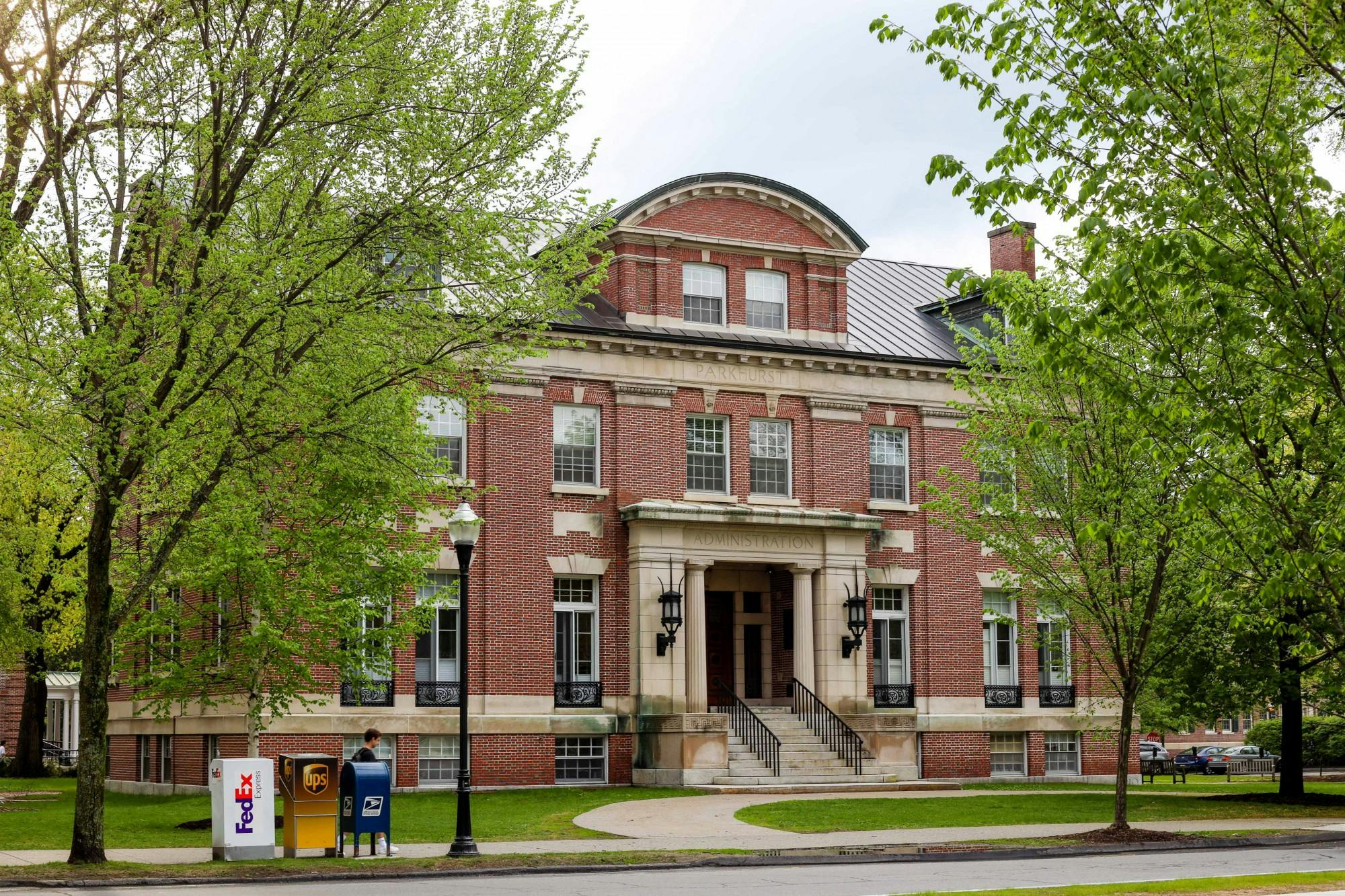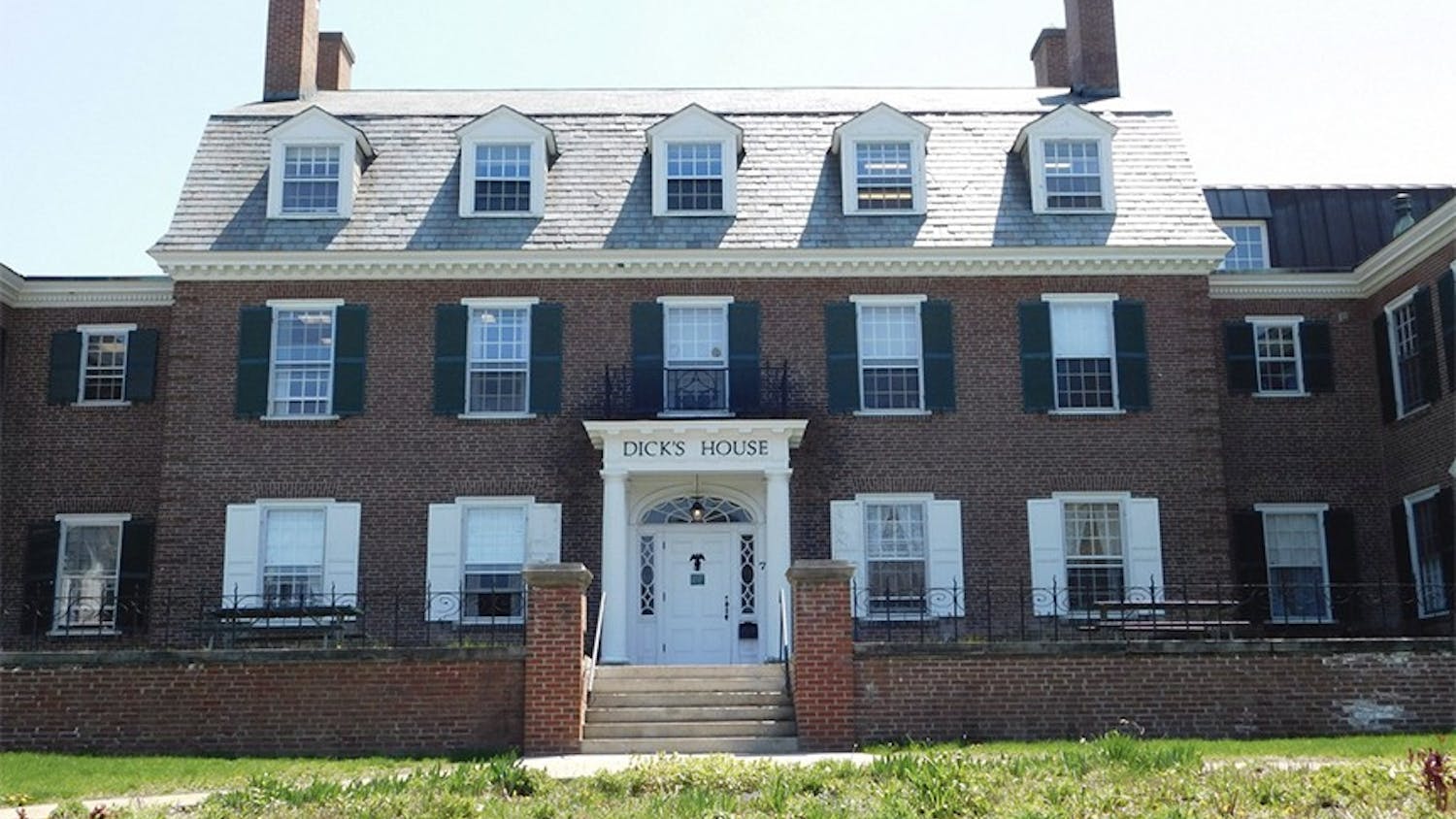On April 29, Provost Joseph Helble broadcast his first “Community Conversation” live on YouTube. The event is part of a weekly series of panel discussions and live Q&A sessions intended to provide updates on the College’s response to the COVID-19 pandemic.
During Wednesday’s conversation with Dartmouth’s COVID-19 task force co-chairs Lisa Adams MED’90 and Joshua Keniston, Helble and the panelists addressed community members’ concerns, including those surrounding the operation of summer and fall term. He noted that decisions about summer grading and the retrieval of student belongings would be made in the next two weeks. Helble added that registration deadlines for fall term classes have been pushed back from spring to summer; the course timetable for fall will now be available on July 17, course election will take place from July 22 to July 30 and the course change period will last from August 7 to August 26.
He noted that while plans for fall remain uncertain, the fall term will not be canceled. An announcement about the structure of fall term will be made by June 29.
“Dartmouth will be open this fall. We are not contemplating cancellation of fall term,” Helble said. “The challenge for us is to figure out in the next two months the appropriate operating model that enables us to bring the maximum number of students safely back to campus.”
In the session, Helble said that the goals of the weekly livestream are to “amplify the messages” that senior College leadership has been putting out in their emails and to give the latest campus updates. The series of hour-long live broadcasts are scheduled to take place every Wednesday afternoon through the beginning of June.
The first weekly “Community Conversation,” moderated by vice president for communications Justin Anderson, featured two live Q&A sessions in which Anderson selected questions submitted by community members through the YouTube livestream interface and asked them to Helble or the panelists.
During the broadcast, Helble said that the task force and its working committees are considering a “hybrid operation” for the fall term that would bring the highest possible number of students to campus.
Helble said that the College will first reopen research facilities over the summer and use the experience to inform its process of bringing undergraduate students back to campus.
According to Adams and Keniston, a research continuity working group led by vice provost for research Dean Madden is focusing on restoring research activities on campus. The restart will be a “careful” and “phased-in” process that follows public health guidelines, such as social distancing, limiting the number of personnel in certain spaces and disinfecting surfaces that are frequently touched.
He added that discussions on who would be able to return to campus under the partially residential hybrid model are ongoing and that a residential fall term, if it happens, will have to follow public health guidelines.
Student Assembly vice president Ariela Kovary ’20 said that she thinks the weekly series is a good compliment to the virtual town hall held at the beginning of the term.
“It's a really good idea that they decided to go about having a clear, transparent way of communicating to the student body, as well as [to] the different faculty and staff members, about what the administration is planning on doing for Dartmouth’s future steps,” Kovary said.
Kovary added that SA sent out notes about the “Community Conversation” and will “hopefully” continue to do so in the future so that students unable to watch the live broadcasts can access the information through a different platform.
Emily Wang ’22, who said she did not tune in to the live broadcast but learned about the panel later through friends and SA’s summary notes, said that she hopes the College will provide clarification on who will be allowed back to campus for the fall as soon as possible.
“There are some issues that could come with allowing certain students to come back and certain students not to come back,” Wang said. “For example, if it's by region, [if] they allow students from certain countries or states to come back and not others, I think there might be concerns of being unfair or discriminatory.”
Gayeong Song ’22, who said that she did not tune in to the panel’s livestream but read SA’s summary afterwards, said she hopes that before making a decision about the fall, the College is sure about what will and will not be possible for the term. She cited the College’s original decision to move the first five weeks of spring term online, only to decide to conduct the entirety of the term online soon after.
“The credibility of fall term being open is already broken for me,” Song said.
Keniston said that his team is two weeks away from finalizing the plan for returning roughly 3,200 students’ belongings. He added that Dean of the College Kathryn Lively will communicate with students regarding the details and logistics of shipping, and that students’ items will be returned over the course of summer.
Wang pointed out that for students who have roommates or large and heavy items, shipping their belongings back home could be logistically complicated.
“[The College] should have options to keep your belongings there or store [them] if you want.” she said.
According to Helble, details about the grading system for summer term will be announced in the next two weeks. While Helble announced in a March 23 email that regular grades will be awarded in any online terms following spring term, he noted during Wednesday’s broadcast that the College is working with the faculty committee on specific parameters, such as whether or not to expand the non-recording option.
Among other topics, Helble explained the College’s choice not to draw from its endowment, saying it ensures “intergenerational equity.”
“The endowment is always considered to be the last resort because of the tremendous implications and impact it could have on future generations,” Helble said.
Helble said that parts of the endowment are legally restricted to be used for certain purposes, such as support for academic buildings and faculty programs. He also noted that earnings on the endowment covered approximately $250 million of the College’s $1 billion fiscal budget for 2020.
He said that announcements on residential programs and foreign study programs in the fall will be made in late May or early June, as will decisions about First-Year Trips and first-year student enrichment programs.
Helble said while all staff members are paid through the spring term, the College will make decisions regarding layoffs and furloughs by the beginning of June.
According to Helble, two Dartmouth faculty members will be invited to talk about their experience with remote teaching in next week’s livestream.
Song said that she thinks the livestream was not a good way for the College to bring up “new, critical information,” noting that she thinks emails are a more effective way to communicate with the student body.
“We are all used to getting emails from the provost [that contain] a lot of information,” Song said. “Those were very, very efficient ways of delivering a lot of data to all the students at the same time.”
Wang noted that she wished the College would put the “Community Conversations” videos in a more prominent place.
“I think maybe a weekly email with links to the [“Community Conversation”] could be helpful,” Wang said.




